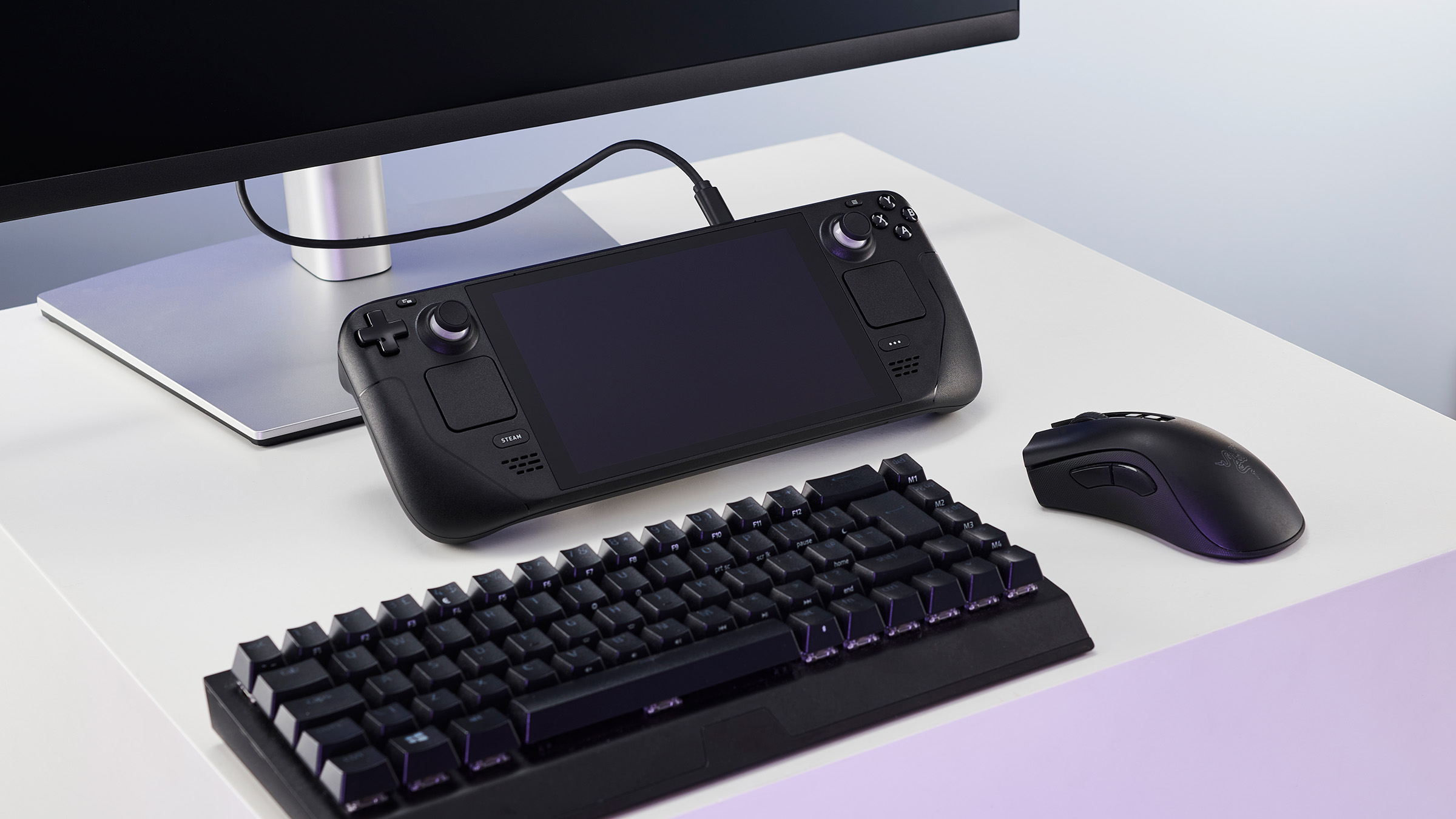The first Intel Core Ultra handheld gaming PC has been unveiled, and it's an oddly massive 11-inch beast
Shame we know so little about the actual device, though.
With AMD dominating the handheld PC market, thanks to the Ryzen 7 7840U APU, it was only a matter of time before somebody decided to give Intel a try. That someone just so happens to be OneXPlayer, a brand that has a pretty decent track record with handhelds, such as the great OneXFly. It's just announced the X1, part of a new line up called the OneXPlorer series, with Intel's new Meteor Lake-powered Core Ultra chip handling all of the duties.
Although it looks just like a tablet, OneXPlayer claims the 11-inch handheld is a 3-in-1 design but hasn't said what that really means. The teaser video gives us a few clues though, as it's very reminiscent of the OneXPlayer 2 Pro. That's an 8.4-inch device that uses Switch-style controllers and supports a magnetic keyboard to become a mini-laptop: tablet, notebook, handheld gaming PC. Three in one.
That's just me guessing, though, as the actual press release is rather light on details. For example, there's no indication as to which Intel Core Ultra chip is inside, other than it being a Core Ultra 7, so it's not possible to work out what its performance will be exactly like, especially in games. There's no mention of RAM, storage, or connectivity options either, though other OneXPlayer models are generally well-served in these areas.
The screen's specs are fleshed out a little more, as it's 10.95 inches in size (let's just call it 11, okay?) with a 2.5K resolution. That probably means it's 2560 x 1600 so that's decent for a panel that size. It has a maximum refresh rate of 120Hz and OneXPlayer also states that it's an LTPS screen. No idea if it's IPS or OLED, but it looks pretty neat in the video (as well as it should).
Apparently, the twin speakers have been tuned by engineers 'skilled in Harman AudioEFX technology' and I'm sure you'll all agree that this is certainly that could mean absolutely anything. I'll go with them just sounding very nice.
If I had to guess, I reckon OneXPlayer will be using the Core Ultra 7 155H, which is a CPU with a dynamic TDP, capable of Turbo power up to 115W, and with a gaming performance not too dissimilar to the Ryzen 7 7840U. I'm guessing it also sports 16GB or 32GB of LPDDR5, as Intel considers 16GB dual-channel memory the minimum spec to enable the Core Ultra's peak rendering chops.

Steam Deck OLED review: Our verdict on Valve's handheld.
Best Steam Deck accessories: Get decked out.
Steam Deck battery life: What's the real battery life?
Best handheld gaming PC: What's the best travel buddy?
There will almost certainly be an NVMe PCIe 4.0 SSD packed into the device, probably 512GB as standard, with an option to select 1TB or more. Will it come with controllers or will they be an optional extra, like a keyboard?
The biggest gaming news, reviews and hardware deals
Keep up to date with the most important stories and the best deals, as picked by the PC Gamer team.
Will it be more than $999, the base price of the OneXPlayer 2 Pro? These are important questions and we've contacted OneXPlayer to see if we can learn more about the X1 before it's officially launched in January 2024.
Potentially, this could be a really neat portable gaming PC and although the screen's resolution might be a bit demanding for the integrated GPU, it's nothing a spot of upscaling won't be able to fix.
If the price, battery size, and connectivity options are all decent, OneXPlayer could have a bit of a winner on its hands. At least we don't have to wait too much longer to find out.

Nick, gaming, and computers all first met in 1981, with the love affair starting on a Sinclair ZX81 in kit form and a book on ZX Basic. He ended up becoming a physics and IT teacher, but by the late 1990s decided it was time to cut his teeth writing for a long defunct UK tech site. He went on to do the same at Madonion, helping to write the help files for 3DMark and PCMark. After a short stint working at Beyond3D.com, Nick joined Futuremark (MadOnion rebranded) full-time, as editor-in-chief for its gaming and hardware section, YouGamers. After the site shutdown, he became an engineering and computing lecturer for many years, but missed the writing bug. Cue four years at TechSpot.com and over 100 long articles on anything and everything. He freely admits to being far too obsessed with GPUs and open world grindy RPGs, but who isn't these days?

